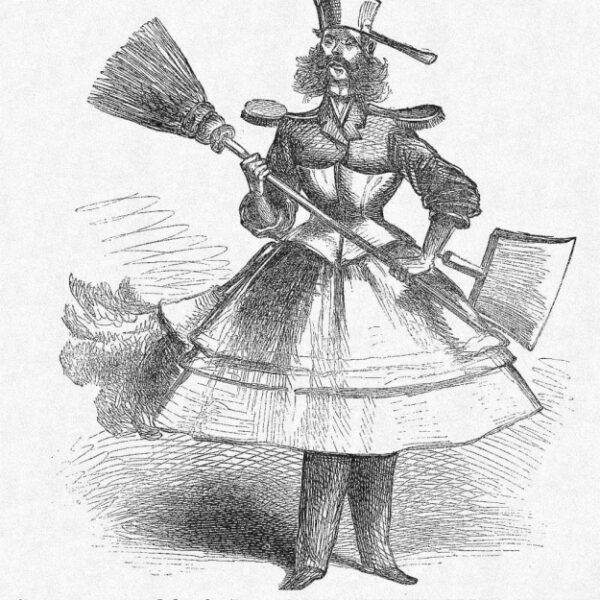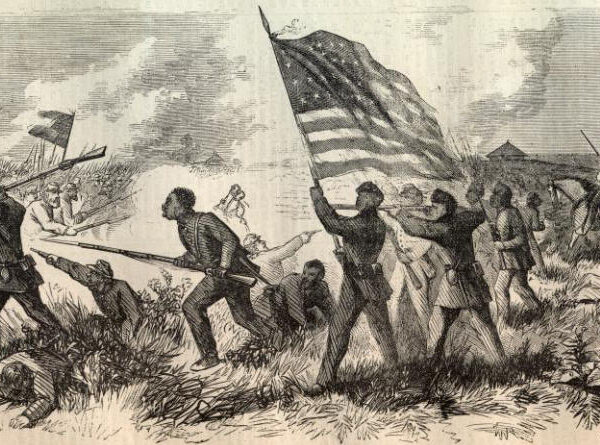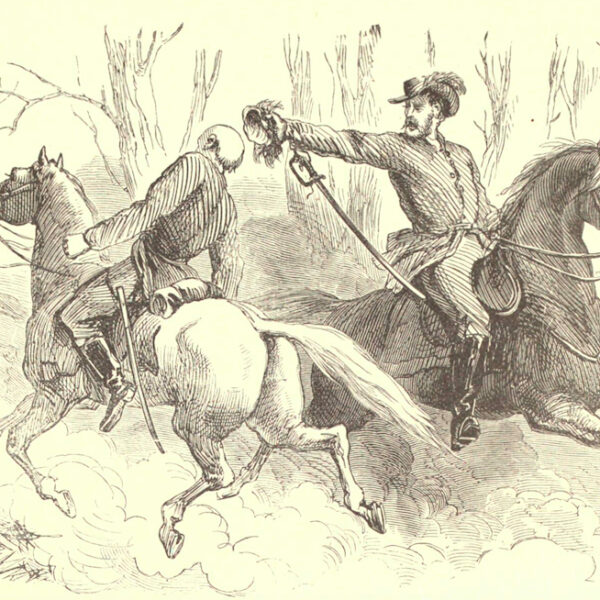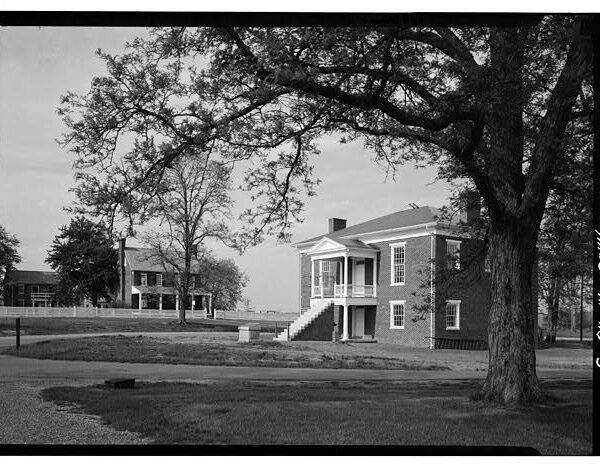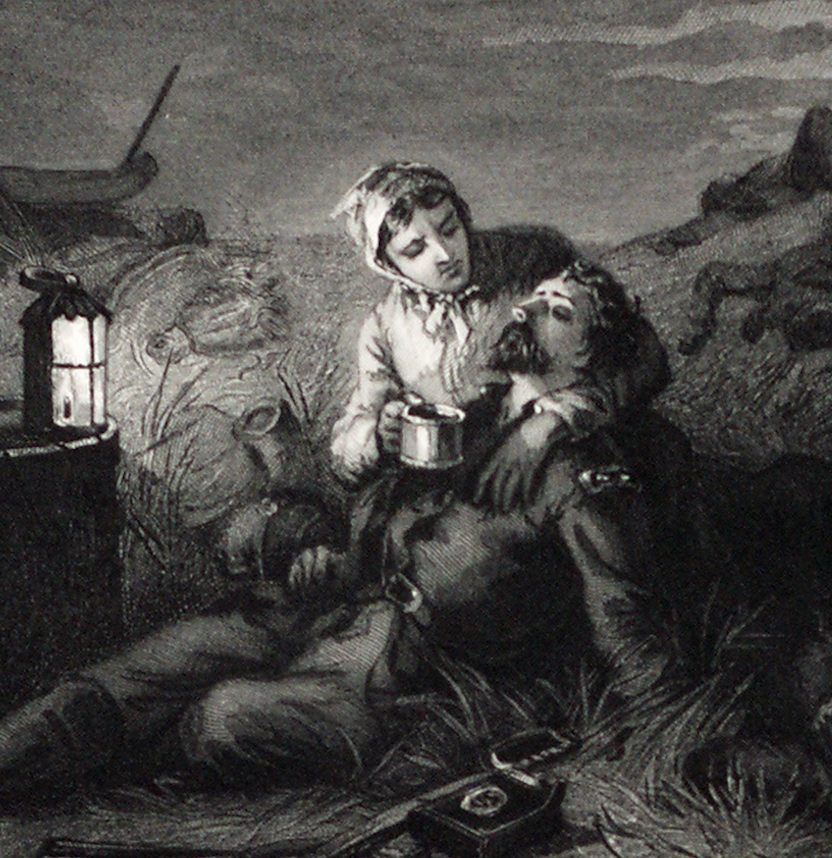
Mother Bickerdyke tends to a wounded soldier in the field.
In the Voices section of the Spring 2022 issue of The Civil War Monitor we highlighted quotes by and about renowned Civil War nurse Mary “Mother” Bickerdyke. Unfortunately, we didn’t have room to include all that we found. Below are those that just missed the cut.
“I was one of the helpless burdens … whom you assailed with helpful indignation because I did not ‘stand up for my rights,’ when you found me in a dirty shirt and without proper attendance. You scolded me soundly, threw me into a capacious clean night shirt, and slapped me around generally, but kept me in mind. Three or four days of your blessed abusiveness and irrepressible cheer turned the tide in favor of life.” —Wisconsin artillerist Jenkin Lloyd Jones in a postwar letter to Bickerdyke, reflecting on the aid she provided him while he was a patient at the general hospital in Corinth, Mississippi, in October 1862.
“Mrs. Mary A. Bickerdyke, or ‘Mother Bickerdyke’ as the boys used to call her, was one of the most energetic and faithful workers of the war. Her fidelity to duty, and her untiring efforts for the comfort of the sick and wounded, have endeared her to her co-laborers and to the old soldiers whom she blessed.”
—Annie Wittenmyer, United States Christian Commission, in her memoirs.
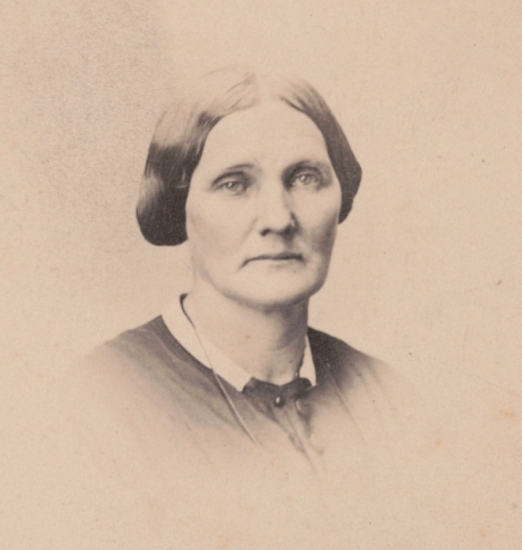
Bickerdyke as she appeared during the Civil War.
“Did I tell you about Mrs. Bickerdyke, who has come down here from the Western army and is cooking for this hospital? She is perfectly splendid. To be sure, she snubs me and everybody else; but, Lord, how she works, and what good things she makes; our men are better fed now than they would be at home, even the best of them. She has many stores of her own, fruits, etc., but those are nothing to her cooking of the common food; she talks bad grammar and jaws us all, but I don’t care; her heart is the best, and she will make most every soldier live, and how she hates a Reb! She is never afraid of any one. Once old Dr. S., of Alexandria, was around inspecting her kitchen, drunk. He found fault with everything; she took him by the nape of the neck, led him out, called a guard, and told them to take this drunken man to headquarters and she would have him court-martialled. He was afterwards glad enough to apologize and to get out of that place, or she would have done it, sure.” —Nurse Mary Phinney, in a letter home from Beaufort, South Carolina, April 30, 1865.
“Let me describe my heroine: A large, heavy woman of forty-five years, strong as a man; muscles of iron; nerves of finest steel; sensitive, but self-reliant; kind and tender; seeking all for others, nothing for herself.” —A description of Bickerdyke given by Dr. Benjamin Woodward, who worked with the famed nurse at a hospital in Cairo, Illinois, early in the war.
“Guards, pickets and military authorities generally, will pass and repass Mrs. M.A. Bickerdyke … to and from any point within this Military Division. Military Railroads and Chartered Steamers in Government Service will at all times furnish her free transportation.” —Pass signed by Major General Ulysses S. Grant, at the headquarters of the Military Division of the Mississippi, in Nashville, Tennessee, February 12, 1864.
“I have a commission from the Lord God Almighty to do all I can for every miserable creature who comes in my way. He is always sure of two friends—God and me.” —Bickerdyke to fellow nurse Mary Livermore, after the latter questioned Bickerdyke’s attention to an older patient by asking, “Why do you waste your strength on such a worthless fellow at seventy-three?”
“That the soldiers felt her tenderness is proved by the name—Mother—they gave her. Indeed she was Mother Bickerdyke to us all—to soldier and civilian, to men, women and children alike. She prized this dear name as she did no other. It was the brightest gem in her crown of womanhood.” —Florence Shaw Kellogg, a close postwar friend of Bickerdyke’s, in a book about the famed nurse’s life.
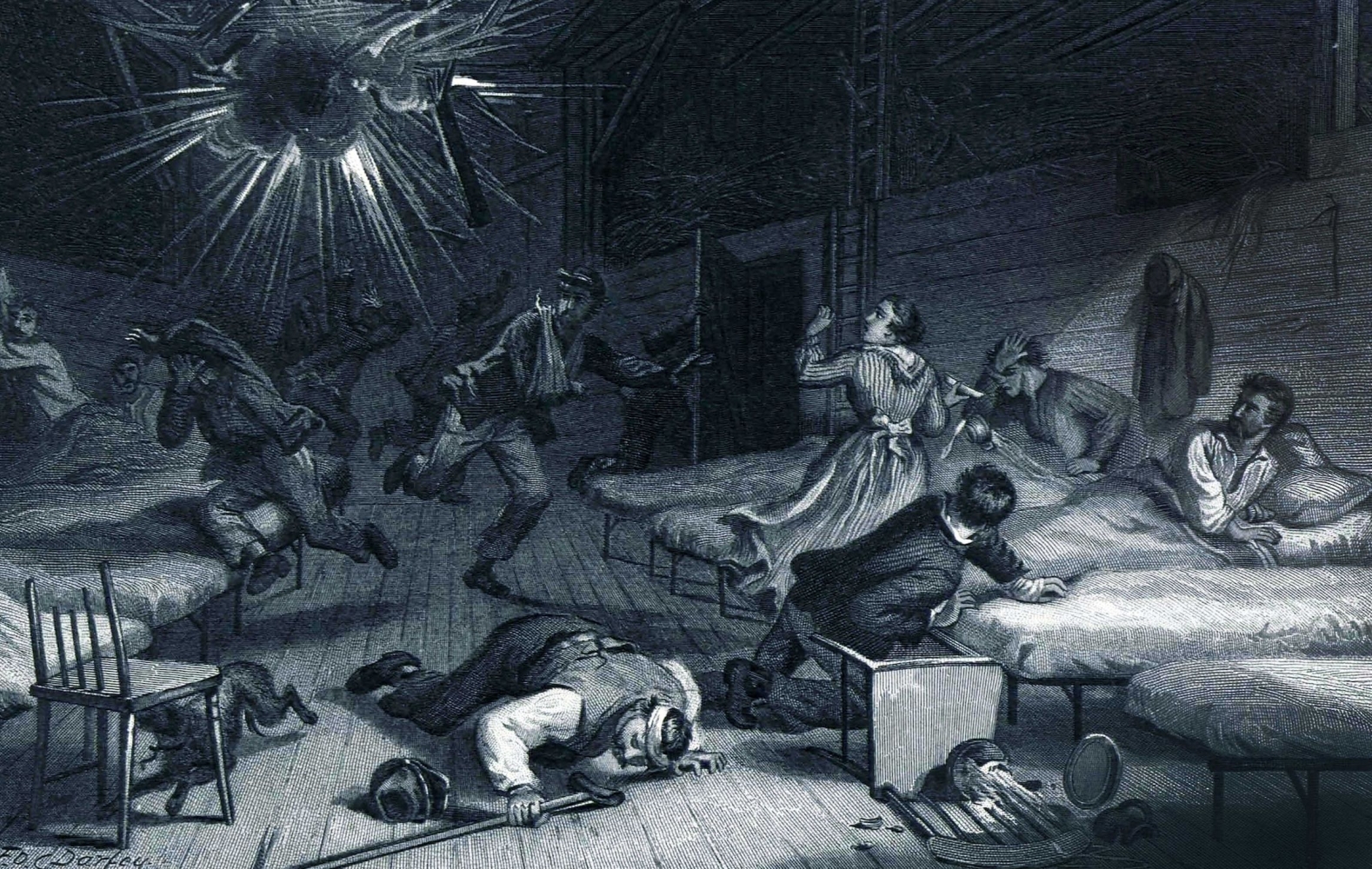
In this illustration by F.O.C. Darley, a Confederate shell tears through the roof of a hospital at Corinth, Mississippi, full of wounded soldiers under the care of Mother Bickerdyke.
“She was ready to arouse a moral earthquake, or let loose a small tornado of wrath whenever she discovered any cruelty or unkindness to the men, or any disorder or neglect, or uncleanness in the hospital or about the premises.” —Nurse Mary Livermore, in a postwar comment on Bickerdyke’s work in a smallpox hospital near Memphis, Tennessee, during the war.
“There was no failure with anything she undertook. Everything must give way before her wonderful will. That she was always right has been well proven, however strange it seemed at the time. Her great simplicity and common sense overcame all obstacles however great, and the greater they were the more willing was she to undertake to overcome them—not for herself, but for others.” —Bickerdyke’s son Hiram, in a letter about his mother’s wartime work, December 3, 1905.
“It was hard, very hard, to leave my home and children, but the way opened for me, the work seemed to come to me to be done, and God gave me strength to do it.” —Bickerdyke in a postwar comment, as recorded by friend and neighbor Florence Shaw Kellogg.
“Hush, I only did my duty.” —Bickerdyke’s response to the sibling of a soldier she had nursed to health during the war who had “tried to express our deep gratitude to her” at her 80th birthday celebration in 1897.
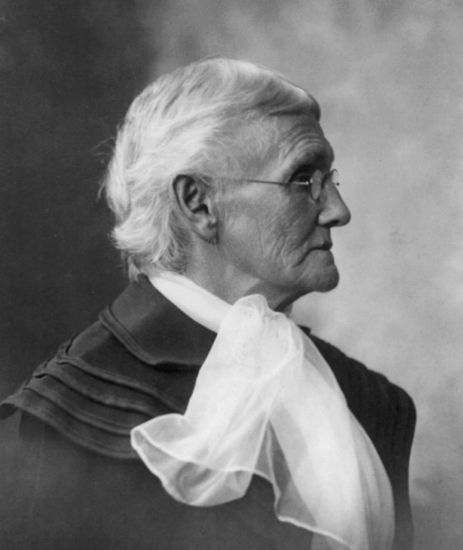
Mother Bickerdyke as she appeared in the 1890s.
“I often think, dear mother, that there must be a glorious crown awaiting you in the next world; certainly if the prayers of the soldiers you have nursed, and the widows and orphans you have helped, can avail, I am sure there is.” —From a letter written by a former Union soldier-patient to Bickerdyke after the war (no date).
“The day we came here General Grant left for Washington and General Sherman took his place. There is great preparation being made for the spring campaign, —new wagons and horses and mules to take the place of wornout ones and many new recruits to take the places of the dear soldiers who have died in hospitals and on the battlefield. Poor soldiers, who have left dear wives widows and their little children fatherless. I hope the boys and girls in Chicago and all through our land will love and try to care for the poor soldiers’ families, whose fathers have died. Children who are at school as you are, and especially those who are at home with their dear fathers and mothers, must not forget that if the soldiers had not fought and died for them they, too, might have been without their kind fathers and mothers and their pleasant homes. I thought when I was in Chicago that the people who were living in comfort there knew but little what it cost others to secure to them so much peace in this time of war. And I thought, too, that mothers who could stay at home and work for the soldiers ought to be very thankful and do much to sustain and comfort those who are willing to leave all to care for those in camps and hospitals.” —Bickerdyke in a letter to her sons, from Nashville, Tennessee, March 21, 1864.
“I never saw that dear old woman but once after the war. That was at the National Encampment at St. Louis some years since. She there corralled about a dozen of us old cripples in the parlor of the Southern Hotel. She would not let any of us get ourselves a chair. She formed a circle, taking a seat in the center, and there talked, laughed and cried alternately as she told each how or under what circumstances she found us, and how she kept many of us alive for many days. It was remarkable how she remembered at what battlefields she found us each one. She remembered most of our names. Dear Mother Bickerdyke is now only a memory. She has gone to her great reward.” —Alvin Waite, a member of the 127th Illinois Infantry during the war, reflecting on Bickerdyke in a letter written after her death. After Waite lost a leg at the Battle of Peachtree Creek in July 1864 he was cared for by Bickerdyke at a hospital in Marietta, Georgia..
“Her unselfishness lifted her above the consciousness of physical danger. She forgot self in her anxiety to relieve the pain and agony of others. She was quick to see the needs of the hour, and quicker still to devise remedies; and she was equally prompt to execute what she saw ought to be done.” —Civil War nurse Annie Wittenmyer, sharing her impression of Bickerdyke after the war
